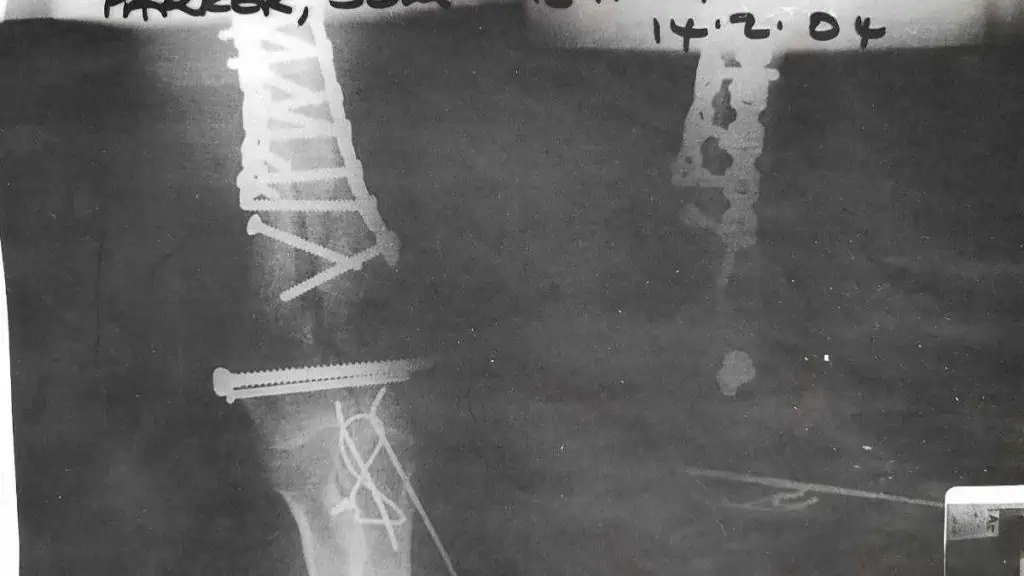Are you curious about whether titanium triggers metal detectors at airports? You’re not alone! Many travelers, especially those with orthopedic implants like titanium joints or screws, often wonder about this as they prepare for airport security.
Will the presence of these metal implants cause any hassle during their journey? Well, we’ll be going over:
- How do airport metal detectors react to titanium implants?
- Are there any specific types of metal implants that are more likely to set off metal detectors?
- What should you do if you have a titanium implant and are about to go through airport security?
Understanding these aspects can make your airport experience smoother and less stressful. Let’s dive in and unravel these metal mysteries!
Does titanium set off airport metal detectors? Titanium implants generally do not trigger airport metal detectors, as titanium is a non-magnetic metal. However, there’s a small chance of setting off highly sensitive detectors, requiring additional TSA screening. Surgical steel, often non-magnetic, also rarely sets off alarms. Dental implants, typically titanium or zirconia, are unlikely to cause issues.

Generally, metal jewelry, particularly gold, does not set off the metal detector alarms and neither do underwired bras. Still, it is not unusual for metal belt buckles, coins, or other metal objects in pockets to set them off.
However, traveling with metal implants is another matter.
Contents
Does titanium set off metal detectors?
Most airport metal detectors create an electromagnetic field and this reacts with metals that are or can be magnetic and set off the alarm if they are detected.
Titanium implants will not set off metal detectors as it is a non-magnetic metal.
This passenger is asking the TSA, “Does titanium beep at the airport?” on Twitter on behalf of her mother, who was going to be flying with various orthopedic implants, including a titanium knee, a metal plate and screws in her arm (just like mine) as well as surgical clips.

My experience of flying with a metal implant
I have first-hand experience of going through airport metal detectors with metal implants. I have lots of metal parts, including a Titanium plate, screws and wire, in my right arm due to surgery after a serious injury to my elbow when I was in the police force.
The first time I flew after that I wondered will Titanium set off airport security alarms? I was quite disappointed that I didn’t set off the alarm when I went through the airport metal detector.
I have flown many times since then and have never set off any metal detector alarms in any of the numerous countries I have visited since then – so far, anyway.
I also have two dental implants, and they do not set off the alarms at airports either.

Does surgical steel set off metal detectors?
Surgical steel (stainless steel) can potentially set off metal detector alarms. However, although it contains iron, it is an inert metal with poor electrical/magnetic conductivity (which is why it is used surgically), so the probability of that happening is low.
Some of the metal in my arm is surgical steel, and I have never set off an alarm.
Will surgical screws set off metal detectors?
Surgical screws will not normally set off the metal detectors at airport security as they are normally made of stainless steel or surgical steel, which is non-magnetic.
As you can see in the x-ray of my arm above, I have many surgical screws and have never set off an alarm.
Do dental implants set off metal detectors?
If you have dental implants, it is very unlikely that you will ever have a problem going through airport security metal detectors and require further security checks by security staff.
The main reason is that most dental implants are made of titanium and, increasingly, Zirconia. Both are non-magnetic.
I have two dental implants and never set off airport metal detector alarms.
What does the TSA say about metal implants?
Surprisingly, there is very little on the Transportation Security Administration website about passing through the airport security checkpoint with medical orthopedic implants. Still, they state that you should “Inform the TSA officer that you have an artificial knee, hip, other metal implant or a pacemaker, defibrillator or other internal medical devices.”
So before you walk through one of the metal detectors, attract a security agent’s attention and inform him/her what type of implant you have and where it is located.
If you do go through and set off an alarm and you have a scar that is easy to show the security agent (perhaps on your arm like I have), then that will probably suffice.
You may be asked to pass through one of the body scanners (advanced imaging technology scanners), also known as millimeter wave scanners (see Wikipedia) or they may carry out additional screening by manual security checks using a metal detecting wand (hand held metal detectors).
You can choose not to use one of these machines as the TSA state “If you choose to not be screened through the advanced imaging technology or you alarm the walk-through metal detector, you will undergo a pat-down screening instead.”
What if you have a pacemaker?
The TSA states on its website that “You should not be screened by a walk-through metal detector if you have an internal medical device such as a pacemaker. Consult with your physician before flying.” You should also inform the security agent.
You can also use the TSA Cares service, as stated in the TSA’s reply below, by calling 855-787-2227 to ask any specific questions and get advice when flying with a medical implant.

Surgical implants and metal detector studies
Several studies have been conducted on people with implants made of commonly implanted orthopedic materials to see if they set off the alarm on most metal detectors or with a metal detecting wand.
Most studies concluded that, with a few exceptions, orthopedic implants did not set off an alarm when passing through a metal detector.
A few studies (see Detection of orthopedic implants by airport metal detectors) noted that invariably those with “Richards cannulated screws” set off the alarm.
Summary
The good news for individuals with titanium implants or other medical devices is they can confidently go through airport security without worrying about triggering metal detectors. Titanium’s non-interference with metal detectors ensures a smooth and hassle-free screening process for those who rely on this metal for their health needs.
FAQs
Do airport scanners pick up titanium?
Titanium is used in many orthopedic implants, but fortunately, as it is non-magnetic, titanium is very unlikely to set off the alarm on an airport metal detector, so security staff will not need to make further checks.
Does stainless steel set off metal detectors at the airport?
If you have stainless steel implants in your body after surgery, then it is very unlikely that you will set off the buzzer when you pass through the metal detector at the airport, so further screening will not be necessary.
What metals will not set off a metal detector?
Generally, metals that are not magnetic, including titanium, stainless steel, and surgical steel, will not set off the buzzer on airport metal detectors.
Related posts:
Can you wear a hearing aid on a plane?
Can you wear contact lenses on a plane?

I have been traveling around the world by air since the early 70s and living overseas too. I worked for British Airways for a number of years and I am also a private pilot. About Me


